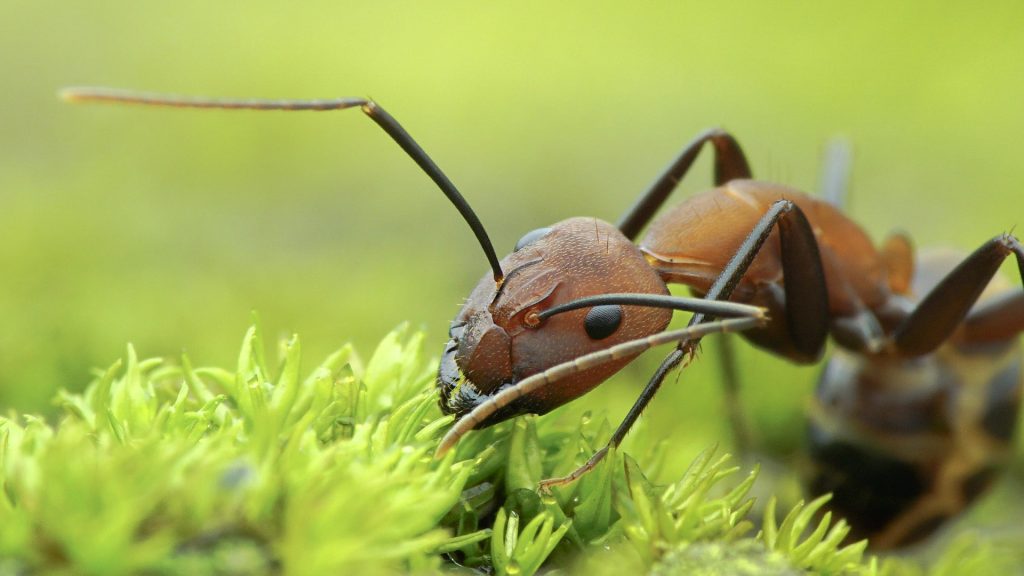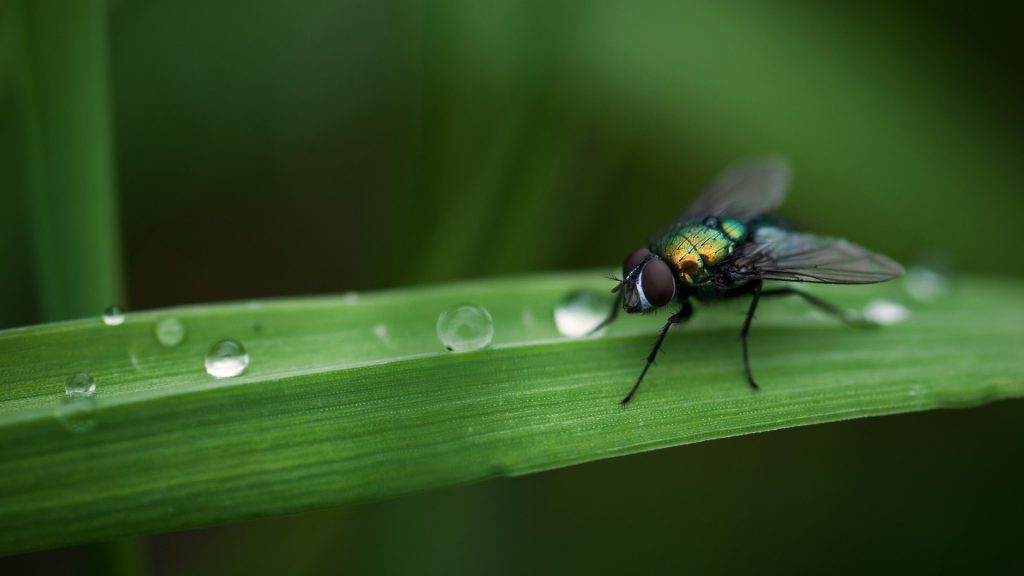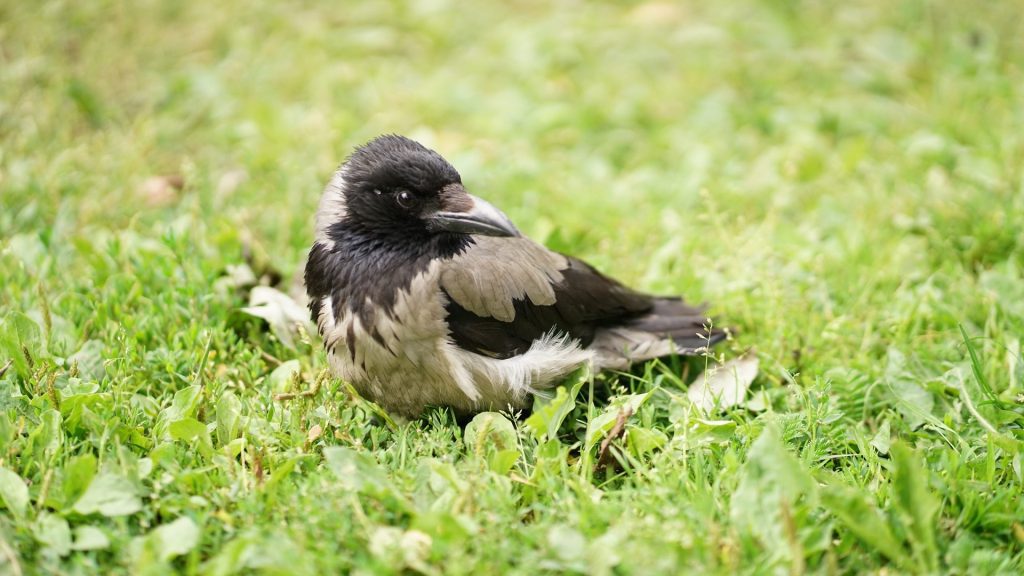
What Are Birds Eating In My Lawn?
In the grand scheme of garden visitors, birds are generally regarded as some of the better ones to have around.
They help eat problem insects and they sing a pretty song, but sometimes they can turn into a bother themselves if they’re always showing up and digging up your lawn.
What are birds eating in my lawn? If you’ve noticed birds eating from your lawn, the most likely answer is that they’re eating grubs and other insects. While this can be beneficial for removing the pests, birds can potentially do a lot of damage themselves while they dig holes during their hunt for food. If you’re ready to say goodbye to the birds for good, we’ve got some helpful tips that you can use to do it humanely and peacefully.
This guide will discover what it is the birds are eating in your lawn and how to ensure they don’t do any harm to your well looked after grass.
Why Are There Birds on My Lawn?
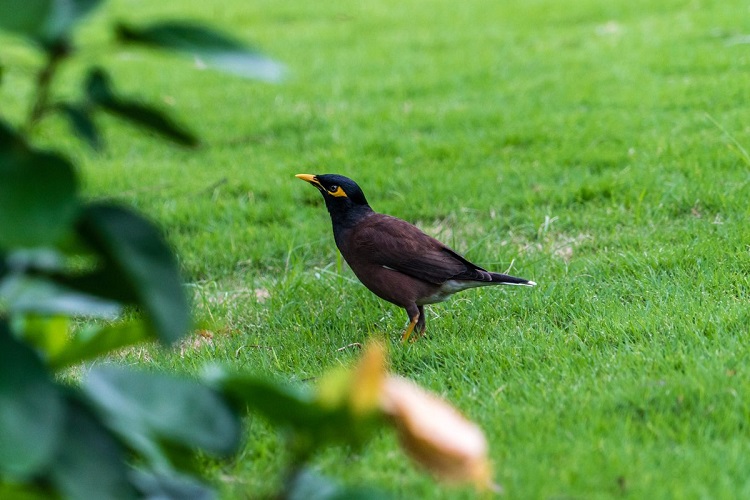
Your lawn is part of the natural ecosystem that occurs outside of your home, and spotting birds on it each day is a common occurrence.
Birds are natural foragers, as this is how they get their daily meals, and the variety of foods that live within your lawn and soil are among some of their favorites.
A bird visiting your lawn will likely be looking to eat things like worms, beetles, and grubs. As annoying as they may be, leaving them alone to do what they do best is usually the best approach.
Birds can even be beneficial to your garden as they get rid of pests that you might otherwise have to treat with harsh chemicals, so if you’re able to tolerate them, let them stay.
Not only do birds like eating insects and pests, but they also feed on certain types of weeds. They enjoy eating plant stems and bulbs that come from weeds, so they can help to eradicate this problem in a natural way as well.
Usually, if you’re spotting an excess amount of birds on your lawn eating away, it’s a sign that there are weeds and pests present, so you might need to take action.
Will They Do Any Harm to My Garden?
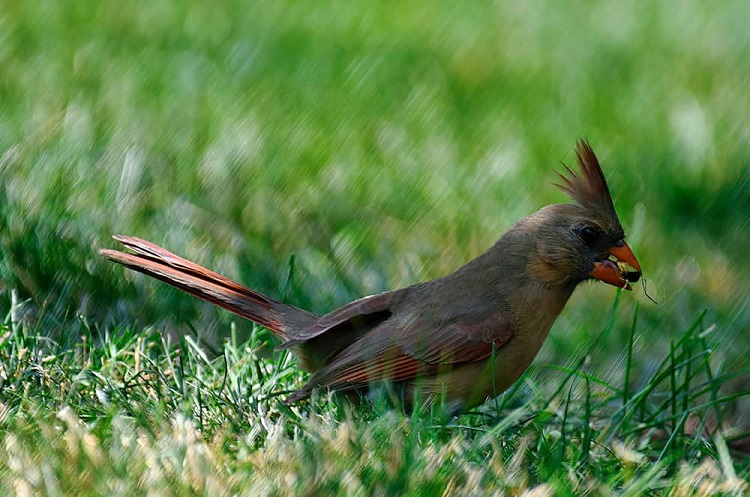
For all the good they do, birds can also be damaging, especially if you’re someone who works hard to maintain a carefully manicured lawn.
Their incessant pecking at the ground can cause holes to appear, which seem small at first, measuring around one inch in diameter, but they can quickly spread.
Having these small depressions on your lawn can add up, causing uneven ground and potential trip hazards.
You’ll need to fill the holes and possibly even reseed the lawn, so if you notice the birds getting out of control, it’s best to act quickly.
Tips for Chasing Birds Off Your Lawn
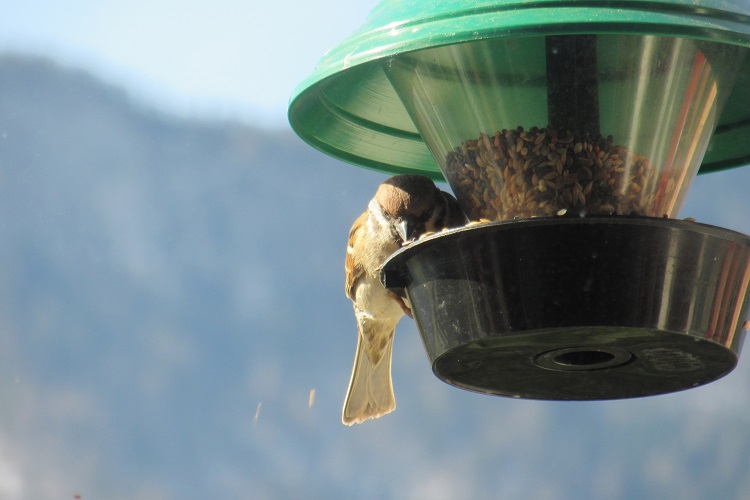
Birds can be wonderful visitors to your lawn, but if they’re overstaying their welcome or doing more harm than good, you’ll want to get rid of them.
These are some of the gentle methods you can try for saying goodbye to the birds that use their lawn as their smorgasbord.
- Have a bird feeder: Sometimes a distraction is the best approach and it can keep birds off of your lawn where they’re doing damage. With a bird feeder up high, they’ll only feast on the seeds you put out and not dig holes in your lawn.
- Use a scarecrow: As old-fashioned as it may sound, scarecrows are extremely effective at scaring away birds. Other modern versions work just as well, as long as you place it somewhere that the birds can see.
- Treat the pest problem: Birds are only gathering in excess because you have plentiful pests to feed them, so consider getting to the root of the problem first. Opt for natural forms of pest control if you want it to be gentle to the birds and other animal visitors to your lawn.
Say Goodbye to Birds
Not all birds are troublemakers when it comes to your lawn, but if they’ve begun feeding and gathering excessively, they can be.
With a few simple tips for managing the bird visitors to your grass and an understanding of why they’re there in the first place, you’ll ensure your lawn is kept in excellent condition.
Related Questions
There are plenty of animals and insects that make themselves known on your lawn, and not all of them are as pleasant as birds.
If you’ve got a problem with an unwanted visitor on your grass, read on for a few commonly asked questions about them that might be able to help you out.
How to Get Rid of Voles on Lawn?
The most effective way to get rid of lawns permanently is by using vole traps, but not every gardener will feel comfortable with this method.
Other approaches include digging trenches, using natural scents like peppermint, and spraying castor oil on the lawn if you prefer a gentler method.
Are Lawn Grubs Always Bad?
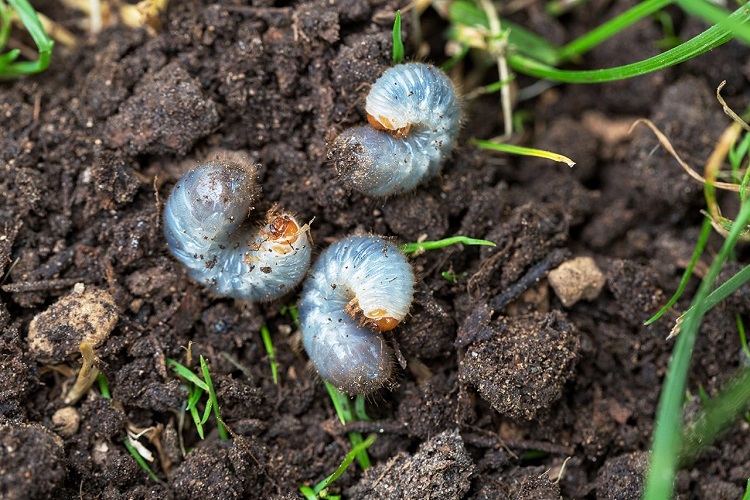
A few lawn grubs within the grass aren’t always a sign of a serious problem, but they can be if you already have a weak root system under your lawn.
As lawn grubs can multiply quickly, you might want to address the issue as soon as you see one appear, but it depends on your gardening style.
Are Insecticides Safe for Pets?
If you plan on spraying herbicides and pesticides on your lawn, you should keep your pets off of them for at least 24 hours or as long as the manufacturer recommends.
Using an organic or natural insecticide doesn’t always mean it’s safe for animals either, so don’t assume that they can ingest these without consequences.
Resources:
